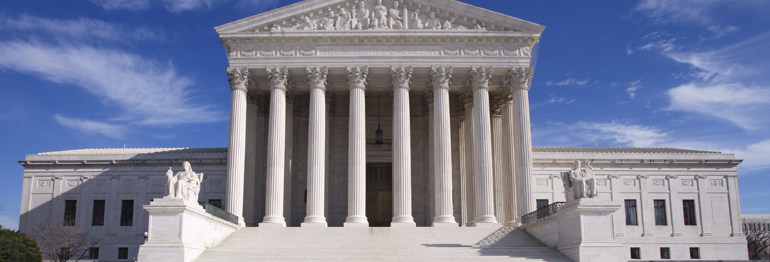The U.S. Supreme Court has just ruled that funds contained in an inherited IRA are not protected from creditors when the beneficiary files for bankruptcy. This could adversely affect beneficiaries of IRAs in Mississippi who later confront financial problems.
In Clark et ux. v. Rameker, Trustee, et al., Clark inherited a $450,000 IRA from her mother. Beneficiaries like Clark have the options of cashing out the IRA within five years (and paying all the income tax upon withdrawal) or taking the IRA account as an “inherited IRA” and stretching out the payments over the deceased owner’s lifetime or the beneficiaries lifetime. Clark took the inherited IRA and spent the funds down to approximately $300,000 before filing for Chapter 7 bankruptcy. She sought to exclude the account from the bankruptcy estate using the “retirement funds” exemption U.S. Bankruptcy Code §522(b)(3)(C). The Bankruptcy Court concluded that an inherited IRA does not share the same characteristics as a traditional IRA and disallowed the exemption. The District Court reversed, explaining that the exemption covers any account in which the funds were originally accumulated for retirement purposes. The Seventh Circuit disagreed and reversed the District Court. The U. S. Supreme Court agreed with the Circuit Court and held that funds held in inherited IRAs are not “retirement funds” within the meaning of Bankruptcy Code §522(b)(3)(C).
According to the Court, the ordinary meaning of “retirement funds” is properly understood to be sums of money set aside for the day an individual stops working. Three legal characteristics of inherited IRAs provide objective evidence that they do not contain such funds. First, the holder of an inherited IRA may never invest additional money in the account. Second, holders of inherited IRAs are required to withdraw money from the accounts, no matter how far they are from retirement. Finally, the holder of an inherited IRA may withdraw the entire balance of the account at any time—and use it for any purpose—without penalty. The Court found that the purpose of the Bankruptcy Code’s exemption provisions is to effectuate a careful balance between the creditor’s interest in recovering assets and the debtor’s interest in protecting essential needs. Allowing debtors to protect funds in traditional and Roth IRAs ensures that debtors will be able to meet their basic needs during their retirement years. By contrast, nothing about an inherited IRA’s legal characteristics prevent or discourage an individual from using the entire balance immediately after bankruptcy for purposes of current consumption. The “retirement funds” exemption should not be read in a manner that would convert the bankruptcy objective of protecting debtors’ basic needs into a “free pass.”
Mississippi, like many other states, requires residents to use state exemptions in bankruptcy rather than federal exemptions. While some states like Texas have specified in their laws that ”inherited IRAs” are included in the list of exempt assets, Mississippi’s statute does not. Mississippi’s exemption statute exempts “an individual retirement account or an individual retirement annuity within the meaning of Section 408 of the Internal Revenue Code” and states the debtor “shall not be entitled to the federal exemptions provided in Section 522(d) of the Bankruptcy Reform Act.” Therefore, children or other non-spouse inheritors of IRA accounts in Mississippi who later file bankruptcy and seek to protect the IRA from creditors may not be able to do so.
Clark et ux. v. Rameker, Trustee, et al. (573 U.S. ___, June 12, 2014)
If you have a concern about your legal rights, remedies and obligations, contact the experienced lawyers of Courtney Elder Law Associates.
